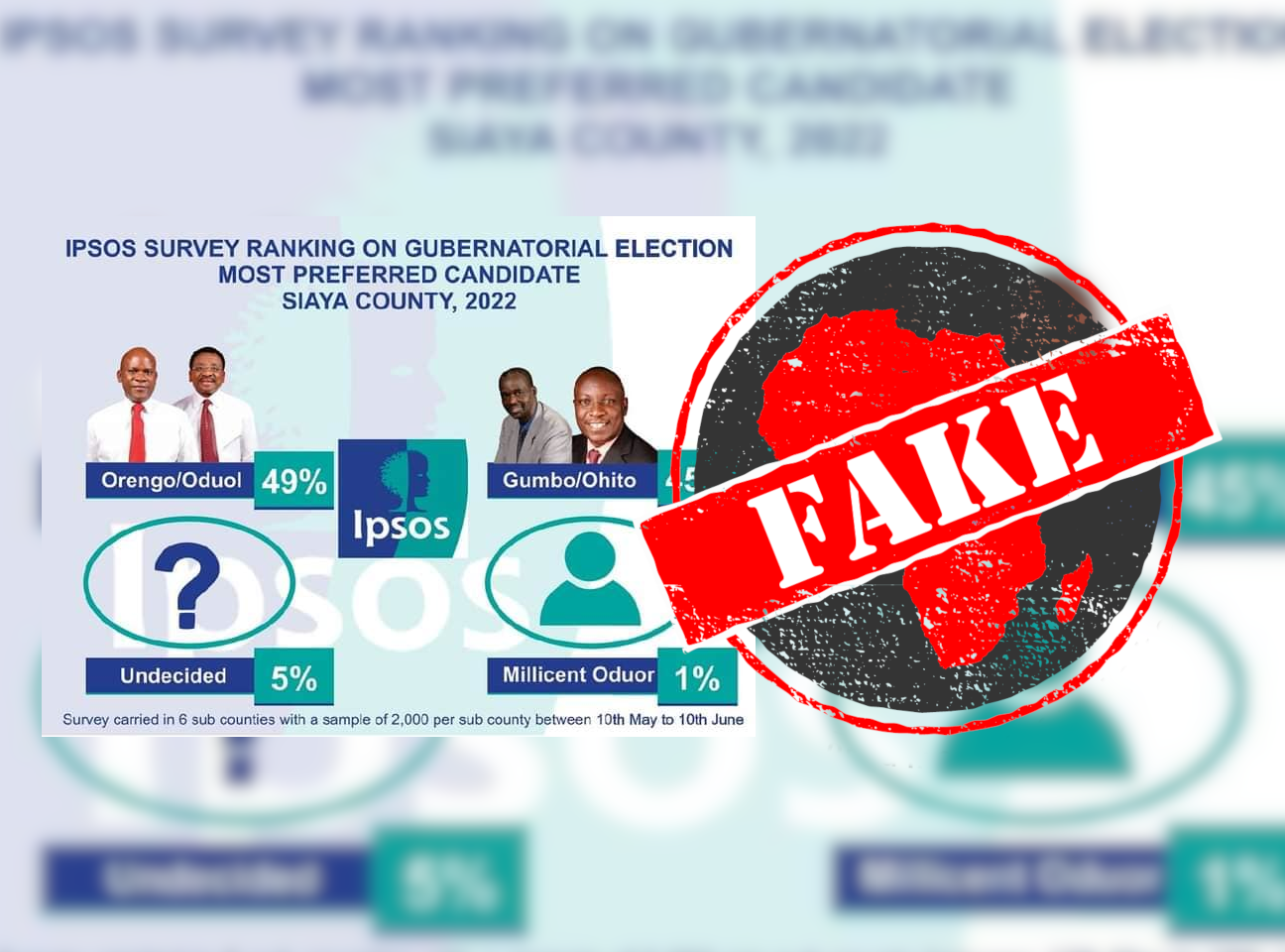A graphic posted on Facebook appears to show the results of a poll in Kenya’s Siaya county, ranking those running for governor in the country’s general elections scheduled for 9 August 2022.
Siaya county is 430 kilometres northwest of the capital Nairobi.
The graphic, published in June 2022, includes the logo of research and polling company Ipsos.
The graphic’s headline reads: “Ipsos survey ranking on gubernaterial election the most preferred governor candidate; Siaya county, 2022.”
Text at the bottom of the graphic says the survey was carried out in six sub-counties with a sample size of 2,000 people per sub-county, between 10 May and 10 June.
The graphic ranks the current Siaya county senator James Orengo as the most popular candidate, with 49%. He is followed closely by former member of parliament Nicolas Gumbo with 45%, while 5% are apparently “undecided”.
But did Ipsos really produce these numbers and publish a poll on the candidates’ popularity? We checked.

‘Fake news’ says polling company
The research agency usually releases its findings to the media, but no such survey has yet been reported.
There is also no record of the survey on the company's official website, Facebook or Twitter pages, where this information would normally be published.
“It is fake news. We have not conducted any political opinion polling during this electioneering period,” Ipsos spokesperson Caroline Mackenzie wrote in an email to Africa Check.
Republish our content for free
For publishers: what to do if your post is rated false
A fact-checker has rated your Facebook or Instagram post as “false”, “altered”, “partly false” or “missing context”. This could have serious consequences. What do you do?
Click on our guide for the steps you should follow.
Publishers guideAfrica Check teams up with Facebook
Africa Check is a partner in Meta's third-party fact-checking programme to help stop the spread of false information on social media.
The content we rate as “false” will be downgraded on Facebook and Instagram. This means fewer people will see it.
You can also help identify false information on Facebook. This guide explains how.


Add new comment